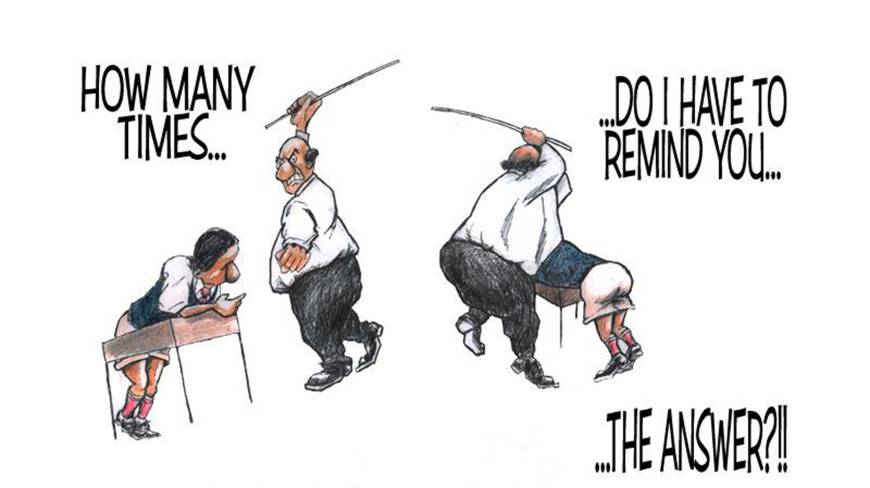
The administering of corporal punishment in schools has always been a contentious issue.
NEWSDAY EDITORIAL
Parents and teachers are divided on this with strong arguments for and against the practice. Zimbabwe’s new Constitution adopted in 2013 bars education officers and teaching staff from meting out corporal punishment on pupils. Early this month, High Court judge Justice Ester Muremba ruled as unconstitutional the caning of a school pupil who had been convicted of rape.
Justice Muremba ruled that section 353 (1) of the Criminal Procedure and Evidence Act Chapter 907 was invalid in terms of Section 167 (3) and Section 175 (1) of the new Constitution.
Some teachers argue that the banning of corporal punishment leads to in indiscipline among scholars.
The Progressive Teachers’ Union of Zimbabwe (PTUZ) led by its secretary-general Raymond Majongwe has sent a petition to President Robert Mugabe urging him to rescind the ban.
His argument is that he is convinced the outright removal of corporal punishment from schools will definitely turn schools into jungles with no master or authority. He says corporal punishment helps to keep students on the straight and narrow.
“As a union, we are receiving reports from our members in schools that cases of indiscipline are on the rise,” Majongwe said.
- Chamisa under fire over US$120K donation
- Mavhunga puts DeMbare into Chibuku quarterfinals
- Pension funds bet on Cabora Bassa oilfields
- Councils defy govt fire tender directive
Keep Reading
“Outright removal of corporal punishment could easily worsen the situation.”
But Majongwe’s plea is not based on scientific fact. The fact that more pupils than in the past, as he says, are involved in cases of bullying, rape, sexual escapades, alcohol and drug abuse, truancy, fights, late coming for school, bunking of lessons and lack of respect for teachers is a result of the scrapping of corporal punishment are not proven by any cited research.
He should tell the nation with empirical evidence based on research over a period of, say, 50 years to prove how the trend has been developing.
Psychologists believe that corporal punishment has far-reaching negative effects on subjects. They say it inculcates a tendency towards the use of violence to solve problems and, in their adult lives, subjects will resort to violence when faced with situations where simple dialogue would have sufficed.
This argument seems to hold water and may explain why the use of violence is so widespread among our youth. Violence is widespread during elections and is often perpetrated by youths who have just left school.
Teachers often use violence in the name of corporal punishment to cover up their ineptitude. There are schools in Zimbabwe which have for decades banned or used corporal punishment only in certain cases which have produced some of the most disciplined citizens.
Schools should create a culture where dialogue rather than force is the norm. It is clear Majongwe and all teachers who think like him have remained steeped in the past where teachers were little despots that ruled through terror.
PTUZ should research into reasons why more children are misbehaving instead of basing their argument on guesswork.











